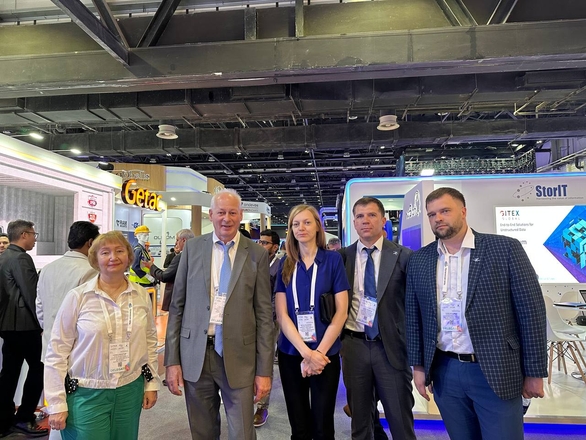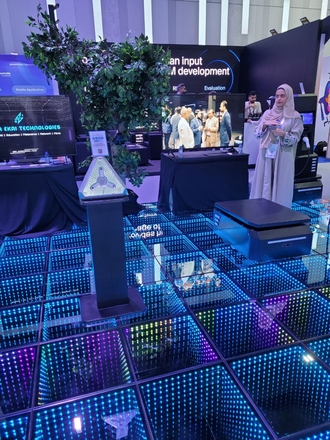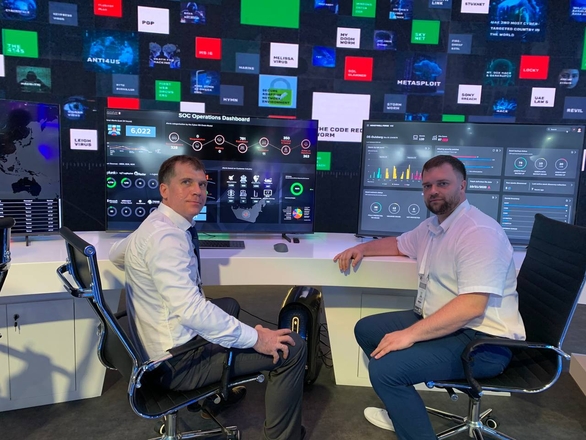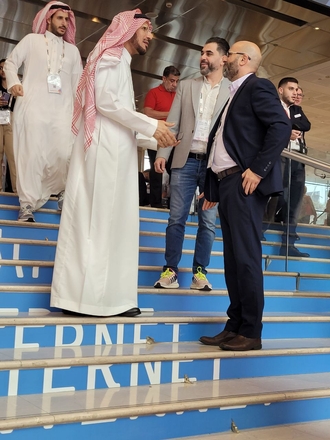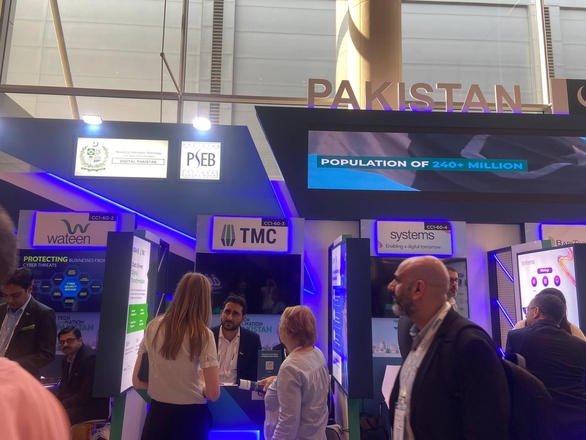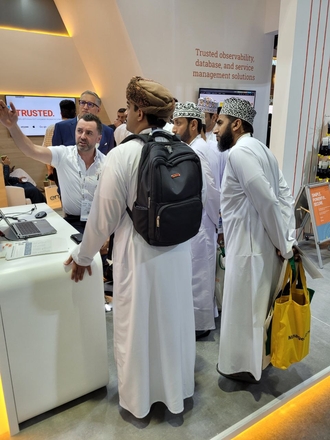Smaller satellites have to give way to bigger ones: why large GEO satellites are still winning out over LEO satellites in the MENA region
The RSCC staff members held a number of meetings and negotiations at the GITEX 2023 exhibition, as well as attended events on satellite topics. During discussions at the GITEX conference, speakers mentioned the trends that will shape the industry over the next decade. According to analysts, the revenue of operators of the global satellite communications market in the next 10 years will grow from $107 billion in 2022 to $123 billion in 2032. Revenue in segments related to data transmission will almost triple (from $19 billion in 2022 to $53 billion in 2032). Meanwhile, the video segment is expected to decline by 20% (from $88 billion in 2022 to $70 billion in 2032).
Against this background of the general optimism about the future of the fixed satellite communications (FSС) market, marketers emphasize rapid changes in the overall ecosystem of the global market, a certain amount of turbulence as a result of increasing competition, and rising costs of space insurance.
Global Trends of Satellite Communications Market
The most important issue for the further development of the global satellite communications market is an accurate determination of the potential of the D2D (Direct-to-device) segment. The total potential of this segment, including those consumers who lack reliable terrestrial connectivity, is estimated by some to be $100 billion. However, we have to consider that most of the people living far away from terrestrial communication links have a rather low income. The prospects for rapid adoption of D2D technology are not yet clear.
Virtually all market players are trying to make own repositioning in one way or another in relation to Starlink. It was announced at the conference that the number of Starlink subscribers has exceeded 2 million and there is no denying that this player made certain progress, as well as had influence on the transformation of the global satellite communications market. Therefore, competitors are desperately trying to find their different approaches to strategy from Starlink with a focus on either a specific market segment and technology or a specific business model.
There was also much discussion related to the interaction between SES and Starlink in the field of mobile communications on marine vessels. This is not the first experience with signing a Starlink cooperation agreement with an integrator, however, it is the first time that the global leading satellite operator is acting as a partner.
Middle East regional operators
The leading regional players in the Middle East satellite market are represented by two operators - Arabsat and Yahsat. At GITEX 2023, the management of these operators emphasized the growing demand for data transmission in the region. One of the main drivers for operators is the pressure that the development of services in other countries is putting on this regional market. Therefore, Arabsat believes that it will develop by launching new services for already developed and unlocked regions and by promoting standard services - TV broadcasting in the first place - to the markets of underdeveloped countries. For Yahsat, the growth point is mobile communications and broadband access, and the main impetus for development is governmental customers who have increased demands for services. The new standards for cooperation with government agencies are then transferred by Yahsat to commercial customers, which contributes to increased demand for the volume of data transmitted. As for low-orbit systems, according to the heads of regional operators, they will not be able to provide governmental and corporate customers with a service of proper quality at a competitive price for quite a long time.
RSCC expands its influence in the region
The entire North Africa, Middle East, South and South-East Asia are served by the Express-AM6, -AM8 and AM7 satellites. The company offers customers its own satellite solutions for organizing communication on land, in the air and on water.
During the visit to the GITEX 2023 exhibition, the RSCC representatives held meetings with companies from the countries of the said regions, not only satellite operators, but also mobile operators widely represented at the exhibition, which use satellite communication channels to organize their tech networks. Therefore, RSCC negotiations were held at the stand of the largest Iranian mobile operator MCI (Mobile Communications Company of Iran). "RSCC has long been present in the Iranian market, providing capacity on Express-AM6 and Express-AM7 satellites to provide a full range of satellite communications services, including traditional TV and radio broadcasting, services for the oil business, banking and public sector, as well as for mobile operators," said Alexei Volin, General Director of RSCC. In the course of the negotiations the representatives of the companies discussed the opportunities offered by the RCSS satellite constellation for the development of mobile communication networks in Iran as a tool to bridge the digital divide in the country, taking into account the mountainous landscape of the Republic and the isolated location of a large number of settlements with reference to major cities. The employees of the RSCC presented possible options of cooperation with companies from Pakistan (mobile operators, IT-companies, DATA-centers) on the use of satellite technologies to provide services directly to the general public.
Customers from Middle East, who are already cooperating with RSCC, have confirmed their interest in the services provided by the Russian operator. Our customers in Kuwait, Qatar, Pakistan and Iran have already properly appreciated all the advantages of satellite and are intensively expanding their networks. Our satellites orbiting on an arc from 14 degrees west longitude to 53 degrees east longitude ensure that proposed joint solution is optimal for the development of broadcasting and communications, including mobile communications. At the same time, companies from a number of other countries in North Africa and South Asia are also expressing their interest in cooperation with the RSCC," said Alexei Volin.
Within the framework of the exhibition, negotiations were held with the current RSCC customers providing services in this region, with regional representatives of large international satellite operators, who were not participants of the exhibition, however who, like representatives of the RSCC, examined the latest achievements in the field of information security, biometrics, innovative and tech solutions, analytical systems. During the discussions and exchange of opinions it was emphasized that at present there is a steady stable demand for geostationary satellite resource, especially in such MENA countries as Saudi Arabia, UAE, Qatar. GEO-satellites are preferable for building corporate VSAT-networks in the interests of oil companies, for providing telemedicine services, educational services - in those areas where it is necessary to transmit large amounts of information, high resolution images (HD and UHD), as well as in hard-to-reach places, for example, on drilling rigs, or in settlements with underdeveloped infrastructure. Also, the issues of current cooperation were discussed and agreements on expanding cooperation were reached with the representatives of current customers.
